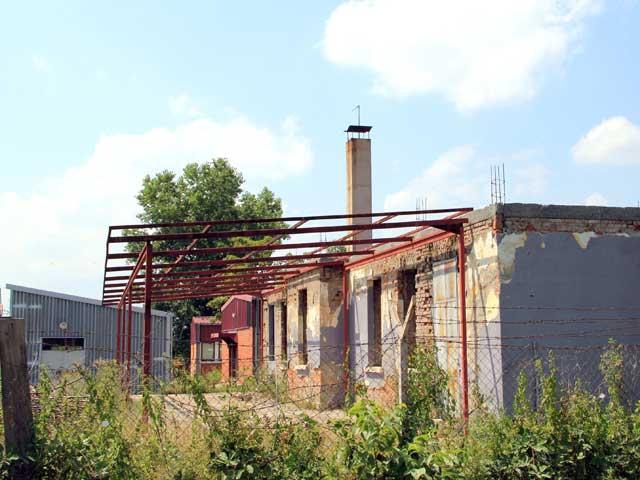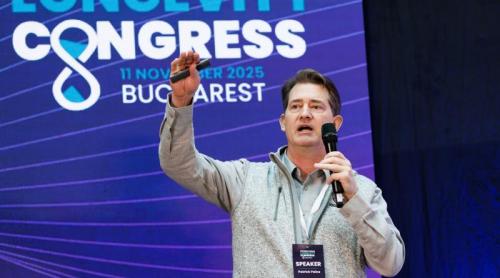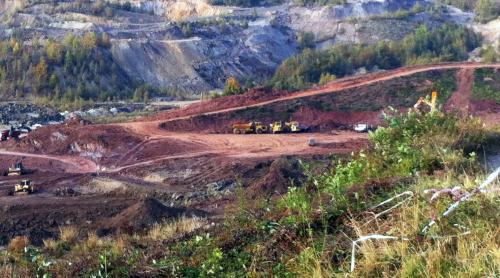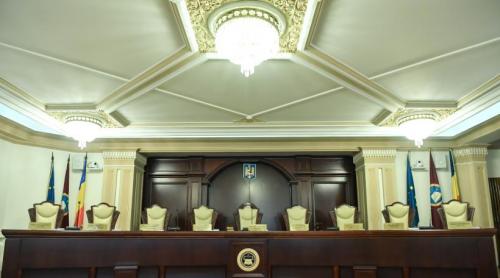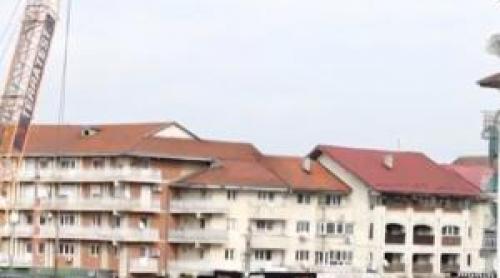
Eleven years after embracing capitalism, Belgrade has cancelled almost 30 per cent of all privatisation deals because of corruption or mismanagement. Yet the system remains open to abuse.
by Stevan Dojcinovic
Just two years after serving a prison sentence for attempting to kill four police officers during a gun battle in Belgrade, Milan Lazarevic decided it was high time he cashed in on Serbia’s privatisation programme.
Seeing no reason why his criminal record should hold him back, Lazarevic set his sights on buying a newly-privatised machine-parts factory, Mašinoservis, in his home town of Valjevo in south-eastern Serbia.
Turns out he was right his criminal past would be no hindrance to the sale. Serbia’s own Privatisation Agency signed off on the deal in November 2005.
In stark contrast to other former communist EU states such as Poland, Serbia was slow to introduce background checks on buyers to prevent criminals profiting from the sale of state companies.
This lack of state control created a perfect environment for widespread criminal activity, including illegal asset-stripping and money laundering.
The scale of corruption and mismanagement was such that Serbia has, to date, cancelled 629 out of a total of 2,281 privatisation deals because the new owners stopped production, stripped assets and failed to pay workers.
Thousands of Serbian workers have also lost their jobs as a direct result of mismanaged privatisation.
While would-be investors are now required to obtain certificates stating they do not have a criminal record and are not facing charges, there are still loopholes in the system that allow criminals to profit from sales.
Lazarevic, who secured state approval to buy Mašinoservis, is now back in a prison cell on trial for allegedly running a racketeering enterprise that extorted payments and favours from Valjevo’s bar and restaurant owners.
He is also accused of ordering the murder of a local underworld rival and has since been charged with tax-evasion, insurance fraud and misappropriating government funds.
‘Only Fools Talk
Twenty-five years ago, Mašinoservis was a successful state-owned enterprise, employing 130 people in Valjevo, 100 km from the capital Belgrade. The factory once had offices throughout the former Yugoslavia.
Today, the building is locked up with heavy chains but it is just possible to peer into the courtyard. The factory is derelict and abandoned; the windows broken and set in half-crumbling walls.
On paper, Mašinoservis continues to employ 12 staff, all of whom say they have not worked or been paid in nine years. Locals in outlying villages who once depended on the factory for work have been forced to scrape a living doing odd jobs whenever possible.
Milivoj Savic, 60, was the only worker brave enough to speak out. His wife protested throughout the interview at their home near the centre of Valjevo, angrily saying: "Only fools talk.'
Just mentioning the name Lazarevic strikes fear in the hearts of people here.
Undeterred, Savic, nicknamed Bosanac, insists that talking to a journalist is pretty much his last option. Partially-paralysed after suffering a stroke, he can neither work nor retire because Mašinoservis never paid his salary or pension contributions after privatisation.
He says from the moment Lazarevic arrived at the factory, there was little evidence the new owner intended to invest and try to turn the company around. Instead, the new boss met the workers and told them to go home.
"Lazarevic said: ‘I have all your phones here in the company and when I find some work, I will give you a call.’ However, he sold all the machines and there's nothing left down there sat the factoryt,' says Savic.
Desperate, Savic finally managed to meet Lazarevic and pleaded with him to at least pay his pension contributions so he could retire.
"How do you want me to beg you, like a father, like a God, like a boss? He told me: ‘Bosanac, you are the age of my father, I’ll respect you for that and have no worries’… but he never paid,' says Savic.
He was the only worker brave enough to seek a face-to-face meeting.
The Deal
Lazarevic bought the company in September 2004, paying the then owner, Vladan Krunic, €13,000 in cash. He was duly granted power of attorney, giving him full control of the company, until the sale could be officially approved by Serbia’s Privatisation Agency.
As the newly-privatised company remained subject to state supervision, only the agency could formally sign-off the sale, which it duly did on November 15, 2005.
Mašinoservis was originally privatised in December 2002 with Krunic paying around €40,000 for the firm. He says he couldn’t turn the company into a profitable enterprise and was unable to pay the workers, all of whom were on strike at the time of the resale to Lazarevic.
During Krunic’s time as owner, the Privatisation Agency inspectors filed two critical reports over his management of the company; one in October 2003 and another in June 2004.
Both reports state Mašinoservis workers’ had not been paid since privatisation and that production had ceased, warning the company might have to be taken back under state control.
Extraordinarily, just five months later, inspectors revisited the factory that had been under Lazarevic’s ownership for just a few weeks to find the workers unwilling to complain about anything at all, despite still not having been paid.
Asset Stripping
According to former owner Krunic and employees, Lazarevic immediately set about stripping Mašinoservis’ assets.
Krunic claims Lazarevic sold key machinery worth €10,000 within the first few months of taking control of the factory.
Lazarevic also allegedly sold one of the factory buildings for €41,000 in cash, according to charges brought by Serbia’s tax office. They claim he sold the structure without declaring the sale, so evading paying tax.
BIRN has obtained records that show Lazarevic mortgaged the factory site, although it has so far been impossible to establish exactly when he took the mortgage or the sum borrowed against the land.
Lazarevic has not directly commented on any of the allegations or on his ownership of Mašinoservis, but his lawyer, Miodrag Duricic, told BIRN that there is "no evidence against him'.
Regarding Lazarevic’s management of Mašinoservis, Duricic said that production and administration problems predated his client’s ownership of the firm.
While extreme, the Lazarevic sale is far from unique in Serbia. This was just one of thousands of small enterprises sold off by the state, many of which will have been subject to illegal asset stripping and other criminal activities.
Not to mention the many Serbs who lost their livelihoods in a country where the unemployment rate stood at 20 per cent in 2010. The number of jobless is expected to continue to rise in Serbia, as the global recession bites further.
Serbia has not yet completed the privatisation process and has another 435 companies to sell, according to Privatisation Agency records.
Fake Buyer Background Certificates
Despite introducing tougher measures to prevent criminals using the privatisation process to launder money or for other illegal purposes, the system remains open to abuse.
Although buyers have been required since 2008 to present certificates from the police or the courts stating they do not have a record, criminals can still circumvent the system.
Some bidders use proxy buyers who do not have any criminal past, many place bids via offshore companies and others even forge the certificates.
"If someone comes with a forged certificate, how could I know that it is counterfeit? These are criminal acts; it must be for someone else to investigate,' says Dušan Belanovic, director of the Privatisation Agency’s communications centre.
Asked why they don’t send the certificates to the police for checks, Belanovic says the agency doesn’t have enough staff to conduct these types of checks.
In addition, Serbia is unable to ascertain the origin of money used to buy businesses through offshore companies.
Fugitive Darko Saric was charged in 2010 by the Serbian authorities on suspicion of running an international drugs ring, thought to have smuggled around 3.5 tonnes of cocaine into Europe, and of laundering as much as €30 million through Serbia’s privatisation process.
Documents obtained through the state prosecution service and business registers in the US and Serbia, show Saric managed to buy Serbian firms through offshore companies registered in the US state of Delaware.
Because the Privatisation Agency did not attempt to establish the origins of the offshore company funds, the authorities claim Saric could have freely laundered millions of euros earned by illicit means.
The importance of robust buyer background checks has been demonstrated time and time again in Serbia. This failure enabled Zoran Copic to buy more than 15 companies in Serbia and Bosnia since 2005, despite being tried for cigarette smuggling at the time of the purchases.
The trial opened in 2004 and is yet to be concluded. He was arrested in Bosnia this April and charged with money laundering offences and is expected to stand trial soon.
Copic was also charged by the Serbian police in late 2010 with illegally mortgaging and stripping assets from some companies.
Law ‘Riddled with Weaknesses
At the heart of the problem lies badly drafted and poorly enforced privatisation laws.
"Privatisation is riddled with incomplete regulations, weaknesses, gaps and holes,' says Vladimir Goati, a politics and economics expert who is also director of Transparency Serbia.
"Dozens of companies were sold… without established conditions that the owner is obliged to act responsibly toward the company and its employees.'
Verica Barac, president of Serbia’s corruption council, agrees: "It enabled tycoons and criminals to formally, by buying companies, actually come into vast estates.'
But Barac says the biggest problem with the current system is that there is still no real external control over the privatisation process.
"The Privatisation Agency is a government body without any accountability. They create, implement and control the privatisation process, but they are not controlled by any one,' she says.
Branko Pavlovic, a former director of the Privatisation Agency, says the law is also flawed because it allows buyers to pay for companies in up to six separate instalments, giving the new owner time to sell off assets before completing the purchase.
"After they get the money sfrom asset strippingt it does not occur to them to pay the rest of the purchase price,' he says. The state is then forced to take back a virtually worthless shell of a firm.
Barac and Pavlovic say that the laws were effectively approved by the World Bank and both claim the bank put Serbia under pressure to get the privatisation process rolling quickly.
"sThe lawt is the concept of the World Bank, based on liberal economics. It was important just to privatise, which meant institutions were not important, the property was not important, the processes were not important, the origin of money was not important,' says Barac.
The man who drafted the privatisation legislation in 2001, Aleksandar Vlahovic, failed to respond to numerous requests for an interview placed via his assistant at his private consulting company Eki Investment.
Privatisation Chief ‘Forced Out
Pavlovic was director of the Privatization Agency for just four months between April and July 2004.
Initially appointed by Dragan Maršicanin, the then minister for the economy, he claims he was sacked because he tried to reform how the privatisation agency was run and to confront crime in privatisation.
Pavlovic says that from the moment he was appointed director at the agency, he was immediately being pressured from all sides, "politicians, international organisations and domestic tycoons'.
According to Pavlovic, shady businessmen would attempt to approach him through a front person.
"Tycoons do that, they find someone who you know and then that person tells you ‘hey Branko, this businessman just asked me, do you want to go to dinner with us’ and I would say not dinner but he can come to the agency and we can schedule a meeting,' says Pavlovic.
But Pavlovic claims that as soon as he tried to terminate a suspicious privatisation deal that he was certain involved corruption, he was immediately fired along with the economy minister who appointed him.
Today he works as a lawyer and adviser to minority shareholders of companies in the process of being privatised.
The situation is not much different in other Balkan states, where privatisation has offered a perfect opportunity for shady deals, as witnessed in Bosnia, Macedonia and Montenegro.
In Montenegro, it is almost impossible to gauge the level of corruption because the details of sales are shrouded in secrecy, since the state hasn’t made the records public.
Podgorica began its privatisation process back in 1997 and around 85 per cent of companies are now privately-owned. NGOs have claimed many of these deals have been subject to high-level, serious corruption.
Slow but Sure Sales in Poland
It couldn’t be more different in Poland, where the state has taken its time over privatisation. Warsaw has developed a system focused on rooting out corruption and organised crime over the two decades since its transition from communism to capitalism.
Twenty years after beginning its privatisation programme, five per cent of Polish companies are yet to be sold, says Ireneusz Jablonski, an economics expert and member of the Adam Smith Institute in Warsaw.
Krzysztof Walenczak, deputy minister at the Polish Treasury which oversees the privatisation process, acknowledges progress has been slow but underlines they put a great deal of effort into finding solid investors.
"When we are selling a company we go to 15 different countries. We go to every financial centre… we have our own internal services that track potential investors. If we have any doubts about whether it is a legitimate investor, we disqualify them,' he says.
Walenczak says that off-shore companies have been excluded from the privatisation process for some time in Poland, because they cannot track the origin of the funds.
Unlike in Serbia and many Balkan states, the work of the ministry is subject to constant review by various agencies, including the powerful Central Anti-Corruption Bureau (CBA).
The CBA targets high-level corruption and reports directly to the prime minister.
"We are a unique agency in the EU because only our bureau has such powers,' says Pawel Wojtunik, director of the CBA. "We can work like the police… and use all ‘special measures’ as the secret service does. We can check the highest officials in Poland.'
The CBA also investigates sales that seem suspiciously low priced, ensuring the state gets the best return possible and rooting out corruption. Offshore companies give Poland a wide berth as they often don’t want to attract the attention of the CBA.
"We had one such case involving the privatisation of shipyards,' says Wojtunik. "A firm from a ‘risky’ country was interested in the sale until the media published information that the CBA was looking into the case. The firm withdrew its offer.'
EU Demands Serbia Investigation
While it seems clear that the Poles see crime-free privatisation as essential for the state and the economy, looming EU membership appears to be more of an incentive for Belgrade to revisit its privatisation process.
In June last year, the EU demanded Serbia re-examine 20 deals suspected of either involving high-level corruption or of failing to comply to privatisation rules.
To sweeten the pill, however, the Serbian government also received in July a €2.2m EU grant to help the state more effectively combat money laundering.
Vincent Deger, the EU ambassador to Serbia, notes that countries in transition to capitalist economies are at greater risk of money laundering because of the privatisation process, but warned the situation was of particular concern in the Balkans.
"Three to five per cent of the gross domestic product is from money laundering activities sin Serbiat. It’s a high risk… it threatens the smooth functionality of the economy and affects the whole of society,' he says.
Despite making much noise over Serbia’s willingness to confront the criminalisation of its privatisation process, not everyone’s convinced.
Barac, the anti-corruption council chief, is particularly unimpressed and doubts that even pressure from the EU will make much difference.
"The council has shown a number of privatisation cases and delivered documentation to the prosecution, but so far there haven’t been any investigations,' she says.
As Lazarevic sits in prison, facing numerous charges of continued criminal behaviour, he remains the official owner of the now devastated machine-parts factory.
While the man the state granted ownership made thousands out of the Mašinoservis by selling assets and mortgaging land, many workers have been reduced to scraping a living and surviving day to day.
Serbs are wondering when their leaders will finally ensure companies, and their livelihoods, are not placed in the hands of ruthless criminals out to make a quick buck.
Stevan Dojcinovic is a Belgrade-based journalist. This article was produced as part of the Balkan Fellowship for Journalistic Excellence, an initiative of the Robert Bosch Stiftung and ERSTE Foundation, in cooperation with the Balkan Investigative Reporting Network.

